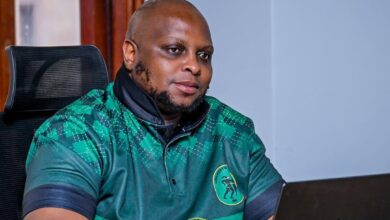DJ Zinhle On SA Youth Being “UnEmployable”: “I apologize if I offended anyone”

DJ Zinhle recently found herself at the center of a heated debate after her comments on Radio 702 about the skills gap among South African youth. Addressing the issue on air, Zinhle expressed concerns that many young people lack the necessary skills for employment, sparking backlash from some quarters who felt her remarks were dismissive of the struggles faced by the youth.
Responding to the criticism, DJ Zinhle took to Twitter to clarify her position and apologize to those who might have been offended. She tweeted:
“I’m glad we are talking about this. Firstly, I apologize if I offended anyone. I wasn’t attacking the youth at all. As a small business owner, I do employ and train people, but this doesn’t even start to solve the problems we are facing as the South African youth. I could do more with support from the government.”
Her post continued with a series of poignant questions aimed at sparking a broader conversation about youth employment and education:
“How do we up-skill our youth so that they are ready for employment? Are we in denial that we are not getting the jobs we want because we do not have the skills required? Are we in denial that not all the people are getting the education they need to be employable?”
Zinhle emphasized the need for a holistic approach to address these issues, pointing out that the conversation should not be limited to those who have completed matric or obtained higher education qualifications but should include all youth facing barriers to employment. She challenged the current focus, urging a broader perspective:
“You guys are speaking from a one-sided view of graduates who have matric, a diploma, etc., and can’t get jobs. I’m not saying they don’t need assistance, they do, but we need to think about the youth holistically so we can challenge the people in power.”
Her apology and clarifications highlight a crucial aspect of the discourse around youth unemployment in South Africa: the need for comprehensive solutions that address both skills development and systemic support from the government. Zinhle’s call to action aims to bridge the gap between education and employability, ensuring that all young South Africans have the opportunity to develop the skills necessary for today’s job market.
DJ Zinhle’s involvement in this conversation underscores the significant role that public figures can play in bringing attention to critical social issues and fostering meaningful dialogue. By acknowledging the complexity of the problem and advocating for inclusive solutions, she sets an example of how influential personalities can contribute to societal progress.




